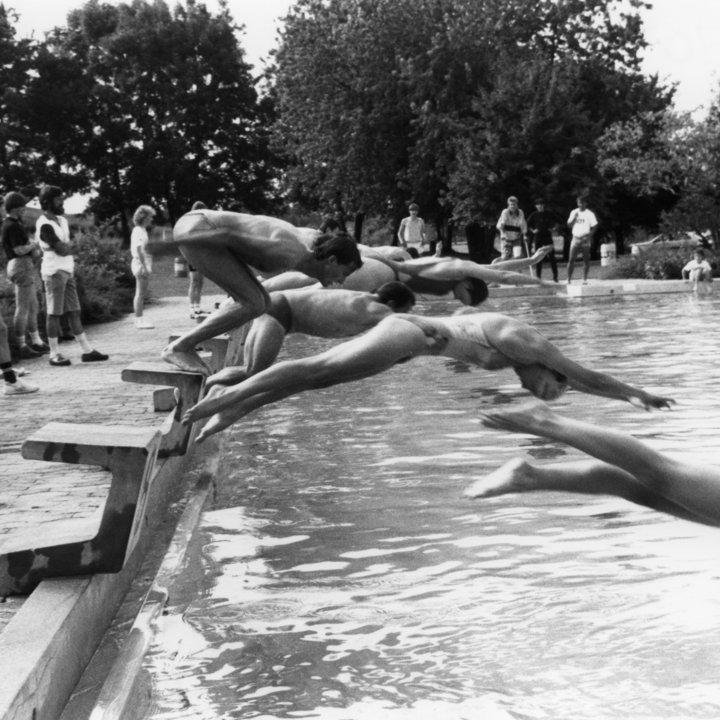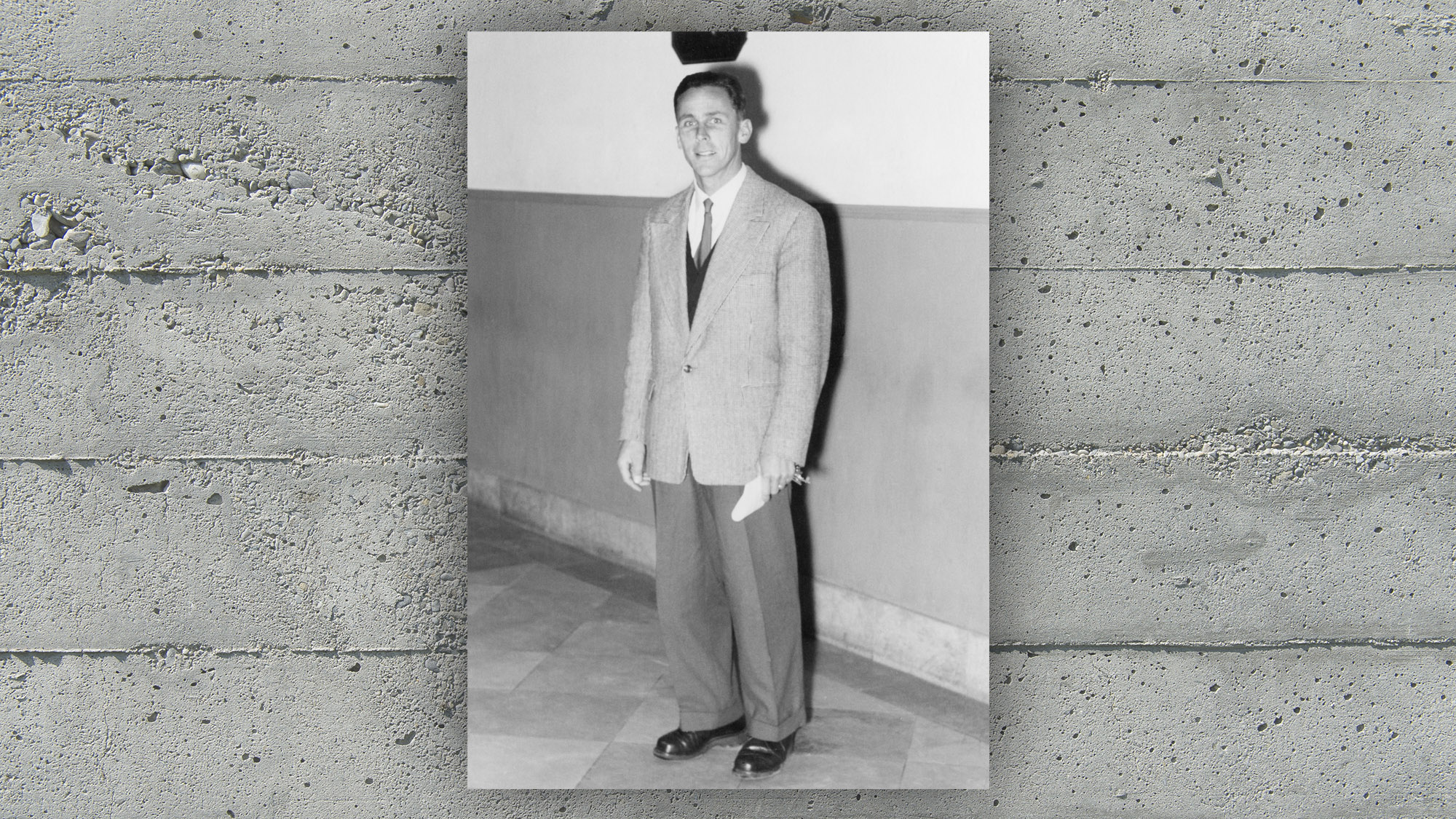1943: First full-time sports teacher Rolf Albonico


In 1943, university sport became institutionalised at HSG with the appointment of the first full-time sports teacher, Dr. Rolf Albonico. Before that, even though sports (such as skiing, mountaineering, tennis and so on) had been very popular among students, such activities were largely a matter of individual initiative. The fact that sport and physical education gained particular attention during the war years can be explained by the desire that was felt to make young people fitter and more resilient in a defensive context. In order to boost fitness for military service, the German Reich had decreed as early as 1934 that sport or physical education be introduced as a compulsory subject at all German business schools. Three to four hours of such physical education per week were compulsory in the first three semesters for every student, and a proof of this was required for the student’s progression to the fourth semester. After the war, sport remained just as important; indeed, it developed and consolidated itself more than ever as a significant factor in the education of young people. As Albonico explained in his essay “The Significance of Gymnastics and Sport for the Students of HSG”, sport was “not a temporary phenomenon of anti-intellectualism [...] but a significant cultural factor of the twentieth century whose significance will grow and grow”. What began its existence in very modest conditions – with a lack of space, of personnel and of financial resources – has developed over the decades into a well-balanced and multi-faceted sports programme for HSG students and staff, known today as Unisport.

Looking at what Unisport has to offer, two striking developments over the past few decades stand out: firstly, from 2000 to 2005, the construction of an additional training room (a pavilion) in front of the sports hall and the acquisition of some rented rooms, and secondly, the inauguration of a major new sports complex at Höhenweg 14, constructed from 2010 to 2014. It is interesting to note that there has been significant growth not only in the range of Unisport offerings but also in the corresponding use of these offerings by students and staff.
In its early years, the university sports programme included traditional sports such as swimming, athletics, running and orienteering, fencing, and gymnastics. Today, students can choose from around 300 classes in over 80 different types of sport each week.
The Unisport department is responsible for the management of a broad range of voluntary training sessions, courses, camps and sporting competitions that are open to all students and employees at the University of St.Gallen, to students at the St. Gallen campus of the Eastern Switzerland University of Applied Sciences (FHSG) and at the St.Gallen University of Teacher Education (PHSG), to alumni and to other stakeholder groups. One of the main tasks of Unisport is to offer a range of sports that have an enriching effect on the lives of university students and staff, helping them to maintain a healthy balance between studying, work and everyday life; this includes advising and supporting members of the university in matters related not only to sport as such but also to health. By means of its extensive programme, Unisport facilitates sporting and social exchange among the members of HSG as well as between HSG and other universities. In addition to the fact that students who are fit perform better in their studies, and the fact that Unisport makes an important contribution to occupational health management, Unisport also plays an important role for the University as an ambassador both nationally and internationally. The Unisport teachers put their diverse skills to good use not only as sport specialists but also as sports event managers, for example when organising regular student events of high significance in St. Gallen. With the European Student Tennis Championships, in 2011, Unisport organised its first major international sporting event; the next step up was hosting the first Student World Championships in Cross-country in St. Gallen in 2018.
A new era began for Unisport in 1991 with the election of Leonz Eder to the Media Commission of the Fédération Internationale du Sport Universitaire (FISU), which led to the Unisport staff becoming more actively engaged in national and international sports associations.
In addition to its core tasks, Unisport also acts as a sport competence centre, increasing public awareness of sport through the regular lecture series that it offers as part of the University’s Public Lecture programme; through the very popular Family Days on Kronberg that it organised from 2010 to 2019; and through the discussion panels that it holds featuring sport stars in the main lecture theatre.
Unisport directors:
- From 1943 to 1983: Dr. Rolf Albonico
- From 1983 to 2000: Hans-Ruedi Bühler, Leonz Eder and Georges Gladig, alternating every two years
- From 2000 to 2018: Leonz Eder
- From 2018 to the present: Daniel Studer
Since 1992, HSG has also housed the headquarters of Swiss University Sports, the umbrella organisa-tion for all university sports organisations in Switzerland (its former name, Swiss Academic Sports Association, was changed to Swiss University Sports Association when universities of applied sciences joined it, and then to Swiss University Sports).